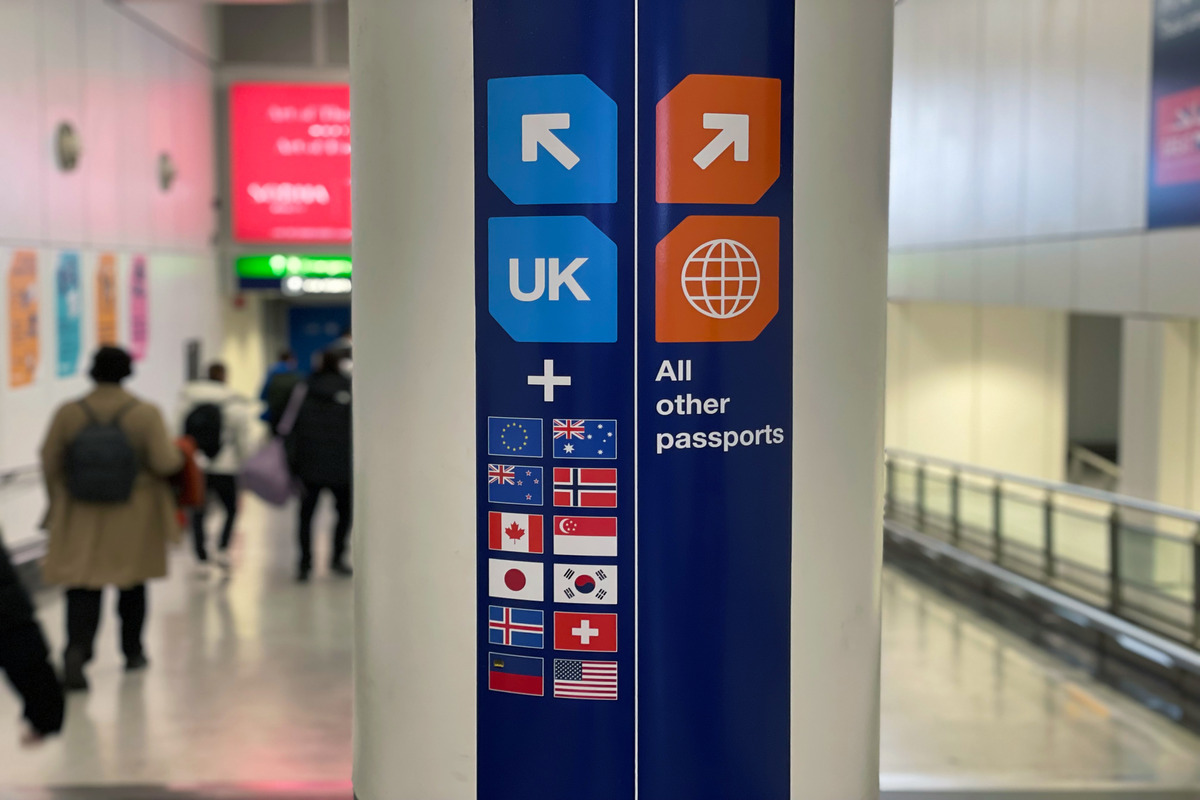
You may have seen headlines about the new Entry/Exit System (EES) coming into effect on 12 October. Some stories suggest fines or being denied entry without the right documents. To help you understand how it will affect you, let’s cut through the confusion and get straight to the facts.
What is the EES?
The new Entry Exit System (EES) is set to modernise border controls across the EU, changing the way UK citizens and other non-EU travellers enter and leave. Instead of getting passport stamps, travellers will now be registered digitally, with records of their entry and exit stored alongside biometric data; in other words, fingerprints and facial scans.
These checks are designed to speed up border crossings, improve security, and make it easier to track who has entered or overstayed in the Schengen Area.
This system applies to all non-EU visitors to the Schengen Area – including UK travellers. The Schengen Area covers 29 European countries that have removed internal border checks, making it possible to move freely between them. They include popular destinations for UK holidaymakers such as France, Spain, Italy, Germany, Greece and Portugal, and some non-EU countries like Norway, Switzerland, Iceland and Liechtenstein.
The EES will launch on 12 October 2025, with full implementation expected by April 2026. For UK travellers, this change is part of the wider impact of no longer being in the EU, following Brexit. Since then, several new rules and systems have been introduced for travel, and EES is just one of them.

Do I need travel insurance to comply with EES?
Legally, no, and the only mandatory requirement is biometric checks (face scans and fingerprints) for most travellers.
That said, travel insurance is always well worth having. While it isn’t part of the EES rules, a good policy gives you protection for both your health and your trip. Some border officials may even ask if you have insurance, and without it you could face extra questioning. That doesn’t necessarily mean you won’t be able to enter the country, but it’s a potential extra obstacle you won’t need to navigate.
What will I be asked at border control?
At EU or Schengen borders, you’ll undergo mandatory biometric checks. Refusing these will mean refusal of entry. These checks don’t apply when travelling to Ireland which is part of the EU but not the Schengen Area, so the EES doesn’t apply there. You may also be asked for:
- the purpose of your trip (leisure or business)
- accommodation details
- proof of a return ticket
- proof of funds, under the standard rules of the Schengen Borders Code, you may be asked to show you have enough money to support yourself during your trip. This is rarely requested for most holidaymakers, but if needed, bank statements, credit cards or similar can be used as evidence
- details of medical insurance (not mandatory, as mentioned above)
These questions often appear at automated kiosks. Answering “no” can lead to further checks by a border official. So on the last point above, travel insurance isn’t required for the EES, but it can help avoid delays or extra stress.
What's the confusion about travel insurance?
Some people confuse medical travel insurance with things like a Global Health Insurance Card (GHIC) or private health insurance, but these aren’t the same as travel insurance. Getting a proper travel insurance policy that includes medical cover is essential. It makes sure you’re not left dealing with delays or, even worse, stranded abroad without the right support. That’s why choosing a policy that truly caters to your needs gives you reassurance. With the right cover in place, you’ll know you’re protected – and you can truly enjoy every moment of your trip.
GHIC vs travel insurance
Your GHIC gives access to state healthcare in the EU and some non-EU countries including Montenegro, Australia, St Helena and the Channel Islands. While it’s great to take with you – and it’s free to get one – it has its limitations. It doesn’t cover private treatment, repatriation, or emergency evacuation expenses, for example. Travel insurance protects you from costly surprises overseas, giving you one less thing to worry about if the unexpected happens.
For instance, an emergency air ambulance from Spain can cost in excess of £45,000. Without travel insurance, the expenses fall to you. Learn more in our guide on GHIC vs travel insurance.

What about travel insurance for other countries?
Some countries legally require you to have travel insurance. Non-British, non-EU travellers entering the Schengen Area may also need it. It’s always best to check the UK government’s foreign travel advice before you go, as rules can change depending on your destination. This guidance not only helps you understand entry requirements, but also highlights local health risks, safety concerns, and whether travel insurance is recommended or mandatory – so you can be fully prepared before you travel.
What you need to remember
Keep up to date with EES developments. While travel insurance isn’t a legal requirement, it gives you confidence, helping you handle any unexpected hiccups and protecting you from costly surprises on your trip.
How PayingTooMuch can help?
At PayingTooMuch, we make finding the right travel insurance easy. By comparing policies from a wide range of trusted travel insurance providers, we help you choose cover that fits your trip, your health needs, and your budget. The right policy doesn’t just protect you from medical bills – it can also cover lost luggage, flight delays, or cancellations, saving you from unexpected costs abroad.
Compare travel insurance quotes now and make sure you’re covered before your next adventure.

